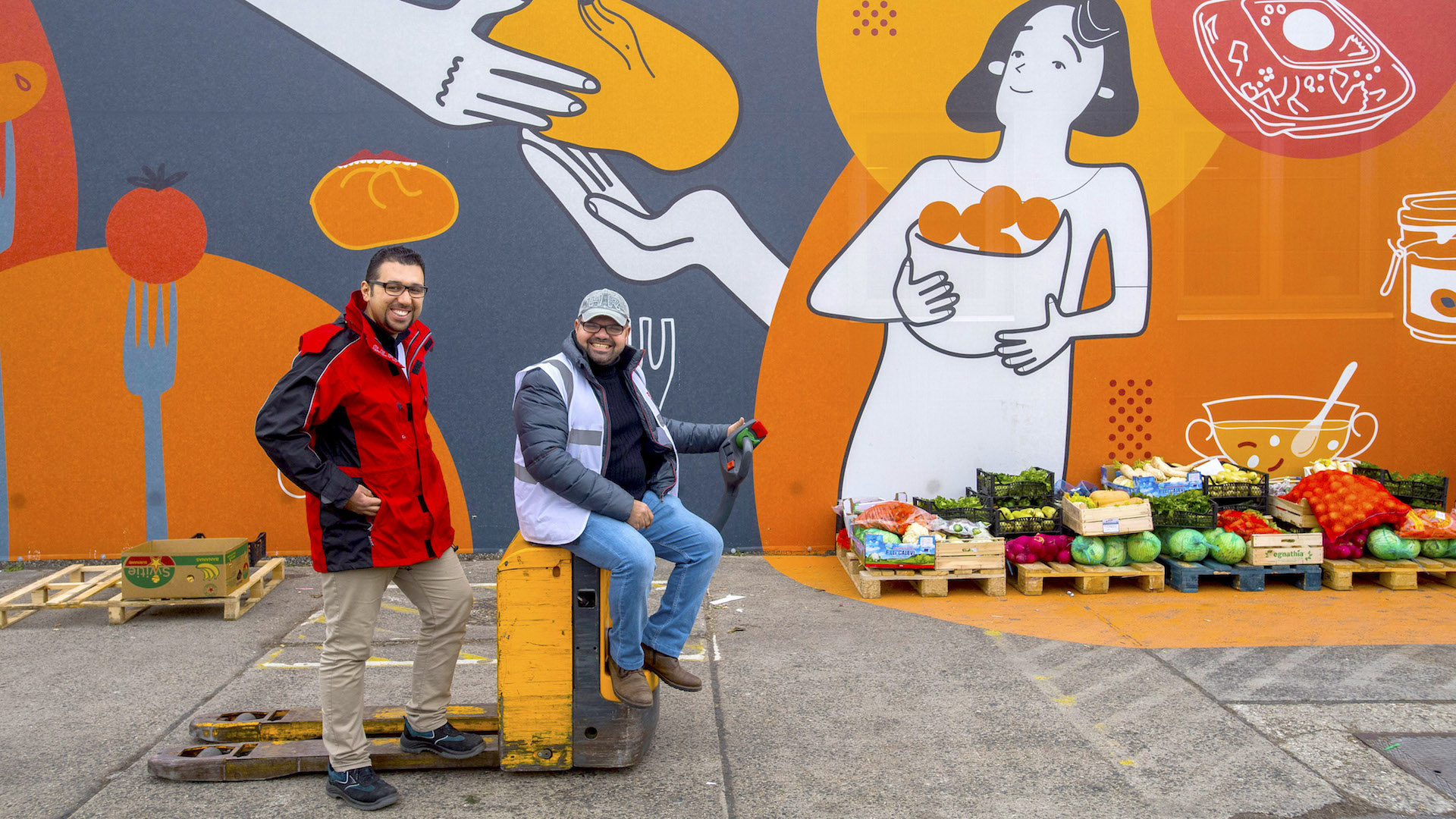Desperate Iraqis end up in Hungary after ill-timed detour to war-torn Ukraine
Desperate Iraqis end up in Hungary after ill-timed detour to war-torn Ukraine

DEBRECEN, Hungary, March 5 (UNHCR) - When Yusuf* and Omar* met in a smuggler's van on the outskirts of Ukraine's second city, Kharkiv, in October, they thought they were heading for Slovakia, en route to a new life in Western Europe.
The two Iraqis were desperate for a safe haven. They had first fled fighting in their homeland in mid-2014 and headed for Ukraine, where they had studied. As the fighting mounted there in the second half of the year, they decided to head west, but their optimism was punctured when they crossed a border and found themselves in Hungary, where they were detained by border guards.
"We should not have come through Hungary at all, but we didn't really know what was happening," says Omar, a 24-year-old dentist. "The smugglers took our mobile phones, and threatened those who asked questions," he explained, adding that the normal smuggler's route to Western Europe from Ukraine was through Slovakia.
In Hungary, they applied for asylum and were sent to a state-run reception centre in the eastern town of Debrecen, while their applications are considered. Others in the centre come from Syria, Afghanistan and elsewhere, some of the record number of almost 43,000 asylum-seekers who came to the country in 2014, of whom about 512 received asylum while many moved on.
The two Iraqis have had plenty of time to mull their decision. Forty-two-year-old Yusuf acknowledges that fleeing to eastern Ukraine, where conflict has raged since the first half of last year, was a desperate measure. But they both had happy memories of Kharkiv, where they had studied, and they also both possessed valid visas for Ukraine.
Yusuf had completed a business course at university there, and Omar had just graduated from medical school with a degree in dentistry. He was on a visit home to Iraq when militants overran his home area in June, forcing him to flee.
Both men knew Kharkiv could only be a temporary shelter because of its proximity to the conflict that has forced more than a million people to find safety elsewhere in the country, while some 670,000 have fled to Russia.
"I love Ukraine," says Omar. "It has given me an education, friends and sweet memories. But it was simply not safe [to stay]. Kharkiv is just two hours' drive from the fighting - and things can change rapidly." Yusuf chimes in: "I was very sad . . . but there was no question about it. I had to pack and run again."
It was their second dramatic escape in 2014. When militants last June captured Mosul, their hometown and Iraq's second largest city, life became hell.
"If I had stayed there, I surely would have died," says Omar. Intimidation of Mosul's residents began, he says, with an Internet campaign that showed the mass execution of Iraqi soldiers and students.
Yusuf agrees: "No one is safe there. If you fall out of line, they are after you and no one can save you." After gunmen threatened him twice in his own house, he took his family to Turkey, which hosts more than 1.6 million people from Syria and Iraq. He left his family behind in a small town in central Turkey when he headed to Ukraine.
"I grew up under [former Iraqi President] Saddam Hussein; I can't survive another dictatorship," says Yusuf. Omar says his father, a wealthy local leader, was killed right after the militants entered the city. The rest of the family found shelter close to Erbil, the capital of Iraqi Kurdistan, which became home to more than 300,000 displaced Iraqis in 2014.
He was still a dental student in Ukraine when his mother called to tell him of his father's death. "I died a little bit that day too," says Omar bowing his head. "At first I was paralyzed. Then I remembered how badly my father wanted me to finish my studies, so I pulled myself together and passed the last exams. I did this for him."
Even though the two young men face uncertainty, they are at least safe and have not given up hope. "We were born and grew up in war. We simply forgot what happiness means," says Omar, adding that maybe Hungary will prove to be a turning point.
* Names changed for protection reasons
By Balint Linder in Debrecen, Hungary








